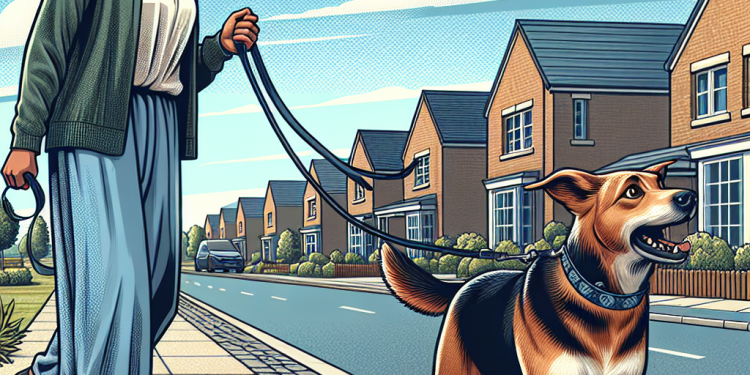The soft fur beneath your fingers. The steady rhythm of a tail wagging, the trusting eyes that meet yours—these are the comforts of canine companionship that many cherish. Yet, for some dog owners, the journey includes navigating the challenges of a reactive dog, whose unexpected barks and lunges can turn a peaceful walk into a stressful ordeal. This article delves into the less-explored side of dog ownership, examining how embracing the unique challenges of reactive dogs can enhance the human-animal bond and promote a more inclusive society.
Dog ownership is widely recognized for its health benefits including lowering blood pressure, heart rate, and stress levels, as well as providing companionship that can help with loneliness, depression, and anxiety. Regular physical activity, such as dog walking, is associated with a lower risk of cardiovascular disease, and dog owners are more likely to meet daily physical activity guidelines than non-dog owners. The companionship of a dog can decrease levels of cortisol, a stress-related hormone, and petting a dog can increase levels of oxytocin, a hormone associated with bonding and affection. Dogs also act as social catalysts, helping their owners to meet new people and improve social interactions. Studies have shown that dog owners tend to have lower cholesterol and triglyceride levels, which can contribute to heart health. Moreover, dog ownership has been linked to a lower risk of death from heart disease and other causes.
However, the impact of challenging dog characteristics, like reactivity, on the benefits of dog ownership is less known. Reactive dogs, defined by behaviors such as lunging or barking triggered by a specific stimulus, may require specialized training techniques such as desensitization and counter-conditioning. Reactive dogs may be more prone to stress-related health issues if their behavioral needs are not properly managed. The American Veterinary Society of Animal Behavior (AVSAB) recommends early socialization to prevent reactivity and other behavioral issues in dogs. Dogs can be reactive due to genetics, lack of socialization, past trauma, or inadequate training. The use of positive reinforcement training is recommended to address reactivity and improve dog behavior. Reactive dogs may benefit from wearing gear that signals their need for space, such as yellow ribbons or vests. Mental stimulation, such as training and puzzle toys, is important for a dog’s well-being and can be particularly beneficial for reactive dogs. Reactive dogs may have a higher threshold for stimuli and may react to things that non-reactive dogs would ignore. Dog behaviorists and trainers often work with owners of reactive dogs to develop individualized management and training plans.
Professional organizations like the International Association of Animal Behavior Consultants (IAABC) provide resources for owners of reactive dogs. The concept of “trigger stacking” is important in understanding reactivity, where multiple stressors can cause a dog to react more intensely than it would to a single stressor. Canine enrichment activities, such as scent work or agility training, can provide outlets for reactive dogs’ energy and reduce stress. Reactive dogs may require a more structured and predictable environment to feel secure and reduce their reactivity. The American Kennel Club (AKC) offers a Canine Good Citizen (CGC) program that includes training for responsible dog ownership and basic good manners for dogs. Some animal shelters offer behavior modification programs for reactive dogs to increase their adoptability and success in finding a permanent home. There is a growing field of research on the human-animal bond and its effects on psychological and physical health.
Embracing reactive dogs as an opportunity for understanding and training benefits society by promoting responsible pet ownership and enhancing the human-animal bond, which contributes to the overall social fabric. Reactive dogs offer a unique avenue for deepening the human-animal bond, as owners must engage in focused training and communication, leading to a more attuned and empathetic relationship. Addressing reactivity promotes responsible pet ownership, as it requires a commitment to understanding canine behavior, thus fostering a community of well-informed and proactive dog guardians. By successfully managing reactive dogs, owners serve as role models, demonstrating the power of patience and positive reinforcement, and encouraging a more inclusive and supportive dog-walking culture.






